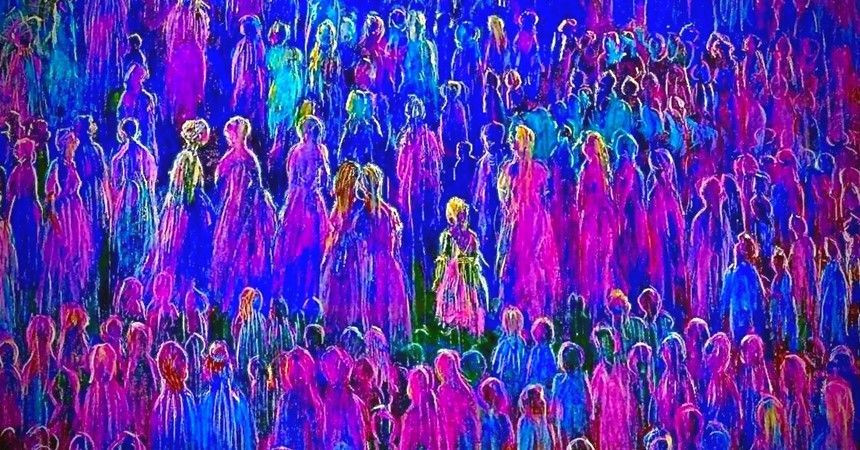What prayer makes the Communion of Saints grow?
Fr. Brian Murphy • July 15, 2025

How do we hear the calls of God? How do we discover his will? The spiritual capacity to know the will of God only grows through knowing God. It is all about communing. Each of us must seek the face of God. That can only happen through prayer. Prayer has many forms, but all forms lead to contemplation. That is simply being with Jesus in our Father’s presence, being loved by them and joining in their love. Only through love can the knowing of God be experienced. Only through love are we and the whole of humanity made whole.
Contemplation overflows into intercession
The journey of contemplation is long and often lonely and frustrating. Gradually, under the mighty hand of God, our spirits awaken, causing many of the false characteristics to diminish that we have adopted as part of our identity. This is very personal, but as each of us develops into the unique image of God that he has created us to be, we become a gift for the whole world.
One of the most surprising effects of contemplation is that we become aware that we do not face God alone. The Holy Spirit gradually guides us to really mean the words ‘our Father’. We are not alone but part of the rich family of God which is gradually reuniting. When we pray, they are all with us.
With that awareness, comes the sense of how humanity is evolving. It is through the faithful actions of all that we progress together. Each act of service and love adds to the vast transformation of all people, past present and future. Every action of mine, either builds or damages all humanity. Within this mystery of shared energy - often hidden - the service of intercession is key. Intercession is that form of contemplation where we gaze on the bountiful Father, and allows that bounty to pour down into other human beings and situations. The contemplative intercessor is the principal healer of the world.
[If you want to read about Fr Brian's own journey
into Contemplative Prayer, Click the heading
Prayer of the Heart at the top of this page]
Real progress and how the real economy works
Pope Francis, in the Mass for the Meeting for the Protection of minors in the Church. (24 February 2019) underlined the centrality of contemplation and intercession as he spoke of a saint of our time, Edith Stein the Jewish convert who became a Carmelite nun and was eventually killed by the Nazis in Auschwitz. He said:
“We look at the figure of Edith Stein - Saint Teresa Benedicta of the Cross, with the certainty that (she expressed when she wrote) “In the darkest night the greatest prophets and saints arise. However, the life-giving current of mystical life remains invisible. Surely the decisive events in the history of the world have essentially been influenced by souls about whom nothing is said in history books. And which souls we have to thank for the decisive events of our personal lives is something we will only know on the day when everything hidden is revealed."[
Scott Hahn writes:
“It is the saints and angels who direct history by their prayers. More than Washington D.C., more than the United Nations, more than Wall St, more than any place you can name, power belongs to the saints of the Most High gathered around the throne of God” (The Lamb’s Supper, pg. 132).
The vast Communion of Saints is the real economy through which we all work together in our prayer and in our deeds when they are offered as acts of love to the Father. Every good act done in the Body of Christ contributes to the great swell of love that is gradually raising humanity. These are the “spiritual sacrifices” (1 Peter 2: 5) that St Peter urges us to offer when he speaks of the Christian's wonderful identity: ‘You are a chosen race, a royal priesthood, a consecrated nation, a people set apart to sing the praises of God’ (1 Peter 2:9).
Truly, while the world goes round and round in circles, repeating the same mistakes in each age, it is the people of God who are gradually moving the whole process on to wholeness.
